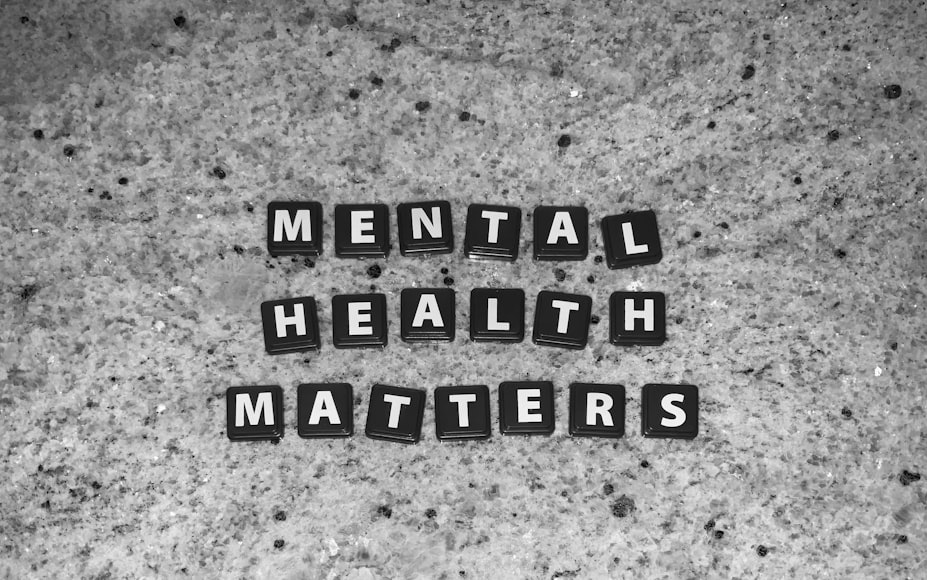Emphysema is a form of chronic obstructive pulmonary disease (COPD), which causes shortness of breath. In emphysema, the tiny air sacs in the lungs (alveoli) are damaged, bursting to make larger sacs with a smaller surface area.
This reduces the efficiency of gas exchange between the blood and the lung, causing lowered blood oxygen, which leads to breathlessness. Much of the advice in this article is generally applicable to all forms of COPD (including chronic bronchitis), so when you read COPD here, think emphysema.
According to the Mayo Clinic, most people who have emphysema also already have chronic bronchitis. Together, emphysema and chronic bronchitis are the most common types of COPD. COPD is the fourth leading cause of death in the UK (ONS, 2018).
What is Emphysema?
Emphysema is a disease where the walls between the alveoli, the fragile microscopic air sacs in the lungs where gas exchange takes place, are damaged, ruptured and broken down. This breakdown means that the lung’s total surface area is reduced, which reduces the efficiency of gas exchange. This lowers the oxygen levels in the blood and raises the levels of carbon dioxide, causing shortness of breath.
 *Image credit by CC BY-SA 3.0, Link
*Image credit by CC BY-SA 3.0, Link
The broken, enlarged alveolar sacs also trap old air with low oxygen levels when you exhale, meaning that there is no room for new, inhaled air, making the breathlessness even worse as the lungs slowly enlarge. The destroyed alveoli also deprive the bronchi, airway tubes in the lung, of support, causing them to collapse, obstructing the passage of airflow in and out of the lungs.
Causes of Emphysema
- Smoking - Tobacco and marijuana smoke can lead to extensive alveolar damage, which leads to emphysema. How this occurs is unclear at present, but it may involve the inhalation of cadmium particles present in the smoke. Smokers are six times more likely to develop emphysema compared to non-smokers. This risk also extends to exposure to second-hand smoke.
- Occupational exposure to dust and chemical fumes.
- Air Pollution - Fumes from heating fuel, car exhaust, etc.
- Respiratory tract infections.
- Genetics - Rarely, a genetic mutation that causes an alpha-1-antitrypsin (AAT) deficiency leads to emphysema by causing the shortage of a blood protein that helps protect the elastic structure of the lungs from inflammation damage.
- Age - As the lung damage that causes emphysema accumulates gradually, and smoking-related emphysema symptoms only appear by ages 40-60.
Emphysema is more common in people assigned male at birth, but people assigned female at birth appear to experience a greater loss of lung function.
Signs and symptoms of Emphysema
You may have had emphysema for years and not know about it, but eventually, you will notice shortness of breath when physically exerting yourself.
This may be accompanied by a persistent chesty cough with mucus that won’t go away. Gradually, the breathlessness and other symptoms will worsen until you experience them all the time.
The stages of emphysema are described well here. Sometimes they may get suddenly worse, known as an exacerbation or a flare-up. These are especially likely during the winter.
Other symptoms of emphysema may include:
- Persistent wheezing
- Chest pain
- Coughing up blood
- Fatigue or exhaustion
- Frequent chest infections
- Swollen ankles and feet (oedema)
- Weight loss and loss of appetite
- Depression
- Sleep problems
- Sex-related problems
- Morning headaches
Some people may develop bluish-grey lips or fingernails from lack of oxygen. If this happens, seek medical attention immediately.
Complications associated with Emphysema
People with emphysema are also at risk of developing severe complications, including:
- Collapsed lung (pneumothorax) - Can be life-threatening in people who have severe emphysema because the function of the lungs is already so compromised.
- Heart problems - Emphysema can increase pressure in the arteries between the heart and lungs. This can lead to a condition called cor pulmonale, in which a section of the heart expands and weakens.
- Large voids in the lungs (bullae) - Some people with emphysema develop bullae. They can be very large and reduce the space available for the lung to expand.
- Respiratory acidosis - This is when the lungs can’t obtain enough oxygen, leading to a coma.
- Hypoxemia - This is when the lungs cannot adequately oxygenate the blood.
- Pneumonia - either bacterial or viral.
Can Emphysema be reversed?
A COPD like emphysema cannot currently be cured or reversed, but the impact of the disease can be reduced using treatment via combinations of drugs that open the airways (bronchodilators), such as umeclidinium and vilanterol or salmeterol, and with oral or inhaled steroids, such as prednisolone or fluticasone.
Oxygen therapy may well be necessary, in which you receive oxygen via a mask, and pulmonary rehabilitation may be used to strengthen the breathing muscles to alleviate symptoms. There are also surgical options, including lung transplant and lung volume reduction (to remove small sections or damaged lungs).
The progression and severity of emphysema may be mitigated or worsened by some key lifestyle factors, including smoking, alcohol and diet.
Lifestyle Factors
The following lifestyle factors have the greatest impact on your risk of this chronic health condition/disease. We will also look at what you can do to reduce your risk immediately.
Nutrition

According to the American Lung Association, if you have emphysema or any other COPD, you should limit your intake of simple carbohydrates (sugar, sweets, soft drinks) and focus on complex carbohydrates, such as those found in wholegrain pasta and bread, fresh fruit and vegetables.
It is recommended that you eat 20-30g of dietary fibre each day from sources, such as bread, pasta, nuts, seeds, fruits and vegetables. You should also eat a good source of protein at least twice a day, such as lean meat, fish, milk, or eggs.
Foods containing saturated or trans-fats, such as in fried or processed foods, should be only eaten in small amounts. It is important to maintain your intake of vitamins and minerals, so consider yaking multivitamin tablets. Prolonged steroid use can increase your body’s need for calcium, so calcium supplements may also be necessary.
Emphysema may cause you to become underweight. Eating foods rich in vitamins A, C, and E, like fruits and vegetables, will improve your overall health. You should drink plenty of water (6-8 glasses a day), as this helps to thin the mucus, making it easier to clear it from the lungs.
Lastly, be careful to not have too much sodium in your diet, as this may increase blood pressure. More in-depth advice on nutrition and COPD can be found here.
Physical Activity

Exercise cannot cure or reverse emphysema, but it can improve some of its symptoms, e.g. shortness of breath. This can make exercise and ordinary daily activity a challenge, but it is important to keep the muscles of the chest and heart as strong as possible to maximise their tolerance to physical activity.
Pulmonary rehabilitation can be very useful in improving exercise tolerance in COPD, gradually building up the exercise under careful medical supervision.
An exercise programme should always include proper warm-up and mobility/stretching exercises, cardiovascular exercise, such as walking or cycling, and strength exercises, such as with free weights.
Exercise will also help with weight control, in tandem with good nutritional practices, and will help to improve mental health and wellbeing.
Overweight/Obesity

According to a recent editorial, more than 1 in 3 patients with COPD are obese. However, it has also been shown that obese patients have less frequent and less severe flare-ups, and are less likely to die from COPD complications than lean individuals.
The elevated BMI (body mass index, a measure of body weight and obesity) is associated with poorer outcomes in mild to moderate COPD. The relationship between body mass and COPD is clearly complex, but maintaining a healthy lifestyle as soon as possible is often recommended by doctors, focusing on a combination of abstinence, nutrition, and exercise.
Smoking

Giving up smoking is the number one change you can make to mitigate the effects of COPD. It is known that smoking causes about 85-90% of COPD cases. Advice and support from the NHS on how to do this can be found here.
Help to quit smoking can take the form of support groups, counselling, medicines, and nicotine replacement therapy, e.g. patches, gum. Giving up tobacco won’t reverse the disease but may slow its progression and make some treatments more effective.
It may also give the immune system a boost, reducing the impact of recurrent chest infections. You should also avoid second-hand smoke if you can, as this will have the same effect on flare-ups as smoking.
Alcohol

People with alcohol dependence are three times more likely to be smokers, and as we have established, smoking is very bad for patients with emphysema.
Drinking alcohol regularly may increase your risk of COPD, but the evidence isn’t clear. Alcohol impairs the clearance of mucus and other debris from the lungs by hairs (cilia) in your airways.
Also, heavy alcohol consumption depletes the body’s levels of a substance, called glutathione, that helps protect the lungs from damage by smoke and other irritants. People with COPD who consume alcohol, are 25% more likely to experience sleep apnoea, and quality of sleep is usually poorer in those that drink alcohol. Those with allergies, which are common in COPD, may also have a sensitivity or allergy to alcohol that may cause a flare-up.
Sleep

According to the Sleep Foundation, three quarters of people with COPD reported having trouble sleeping, getting to sleep and staying asleep, and also having lower sleep quality. This can be due to oxygen desaturation (i.e. reduced blood oxygen levels or hypoxaemia), which affects particularly rapid eye movement (REM) sleep.
Coughing and wheezing also make falling asleep very difficult when lying down, and those with COPD also frequently suffer from gastroesophageal reflux (GERD), the pain and discomfort of which impairs sleep.
COPD patients frequently have obstructive sleep apnoea (OSA), gaps in breathing rhythm during sleep. Sleep apnoea causes frequent night-time awakenings, oxygen desaturation and sudden spikes in blood carbon dioxide levels (hypercapnia). When COPD and OSA happen together, this is called “overlap syndrome”, associated with even more severe hypoxaemia episodes than COPD alone.
A continuous positive airway pressure (CPAP) machine is the first line of treatment for overlap syndrome. Signs of a sleep disorder might include snoring, gasping or choking during the night, headaches and daytime sleepiness.
Mental Health

According to the American Lung Association, chronic illnesses, including COPD, negatively impact mood and cause increased depression and anxiety. You may feel sad, fearful, or worried about your illness. You may be an ex-smoker, and blame yourself for having COPD, or you might feel distanced and isolated because you can’t participate in your usual social or physical activities.
Shortness of breath can also cause anxiety and panic attacks. Mental health issues can affect the course of your COPD. For example, having depression, may make you more likely to neglect your treatment plan or your general fitness and wellbeing, leading to more frequent flare-ups. Pumar et al. (2014) suggested that anxiety, depression, and COPD could even have a common cause.
Fortunately, there are things you can do to get help with these mental health issues. Speak up, talk to your care team, and they can signpost dedicated specialists, or join a support group near you. Look after your physical health and stay active; this will benefit your mental health, and make time for social activities with family and friends.
Wellness

Keeping your emotional health balanced is necessary for your physical health. Self-care is important for overall good health. Improving your mental and physical wellness will help you manage your emphysema/COPD.
Staying active, going for walks, doing exercises, eating a good diet, and sleeping as well as you can all contribute to wellness.
Mental wellness can be improved by giving yourself time for your pursuits, such as an absorbing hobby or social activities with family and friends. Try mindfulness, breathing exercises or relaxation techniques.
These are great for managing anxiety and depression and will have a knock-on effect on your physical wellbeing, especially the breathing exercises, which will help you when you are short of breath.
The primary take-home message of all these lifestyle factors is to care for yourself, eat properly, do regular exercise, and follow your treatment regime.
Be mindful of your mental health and seek help if you need it. Sometimes, only other people will notice if you’re struggling, so it’s important to keep talking to people and maintain social contacts.
Summary
Emphysema is a chronic health condition which can be caused primarily by smoking due to the severe damage the chemicals cause to the lungs. It can also be caused by other factors such as environmental factors, other health conditions and age.
The main symptom of emphysema is breathlessness when exercising. There are also some complications associated with this condition. However, the symptoms can be alleviated through medical treatment and also by making some lifestyle changes.
Diagnostic Testing
At Klarity, we use the latest technology when it comes to diagnostic testing. Our home blood tests give you health insights and personalised recommendations. Find out which test you should take.
Useful Sources
References
- Beeh, K.M. (2016) The Role of Bronchodilators in Preventing Exacerbations of Chronic Obstructive Pulmonary Disease. Tuberc Respir Dis (Seoul). 79(4), pp. 241–247.
- Ganguly, K., Levänen, B., Palmberg, L., Åkesson, A. and Lindén, A. (2018) Cadmium in tobacco smokers: a neglected link to lung disease? European Respiratory Review 27, pp. 170122.
- Iyer, A.S. and Dransfield, M.T. (2017) The “Obesity Paradox” in Chronic Obstructive Pulmonary Disease: Can It Be Resolved? Annals American Thoracic Society 15(2) pp. 158-159.
- Pumar, M.I., Gray, C.R., Walsh, J.R., Yang, I.A., Rolls, T.A. and Ward, D.L. (2014) Anxiety and depression—Important psychological comorbidities of COPD. J Thorac Dis. 6(11), pp. 1615–1631.
- Verberne, L.D.M., Leemrijse, C.J., Swinkels, I.C.S., van Dijk, C.E., de Bakker, D.H. and Nielen, M.M.J. (2017) Overweight in patients with chronic obstructive pulmonary disease needs more attention: a cross-sectional study in general practice. NPJ Prim Care Respir Med. 27 pp. 63-68.






